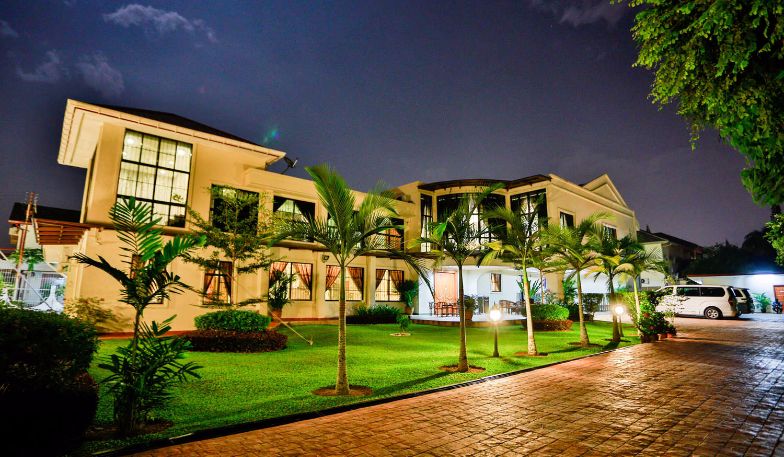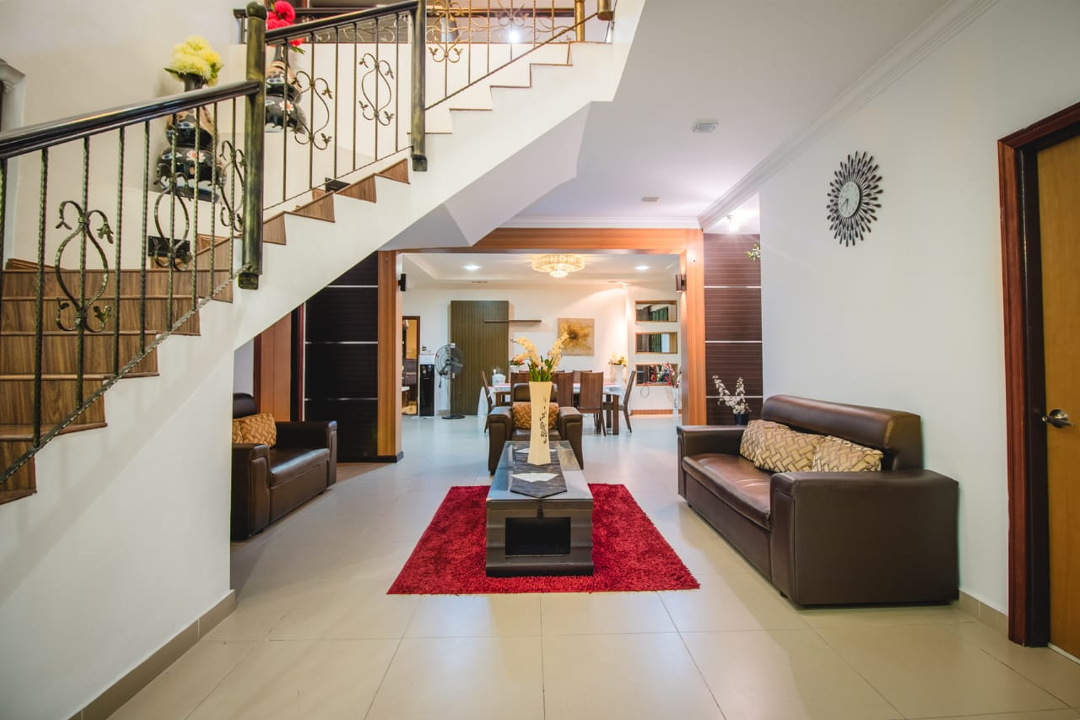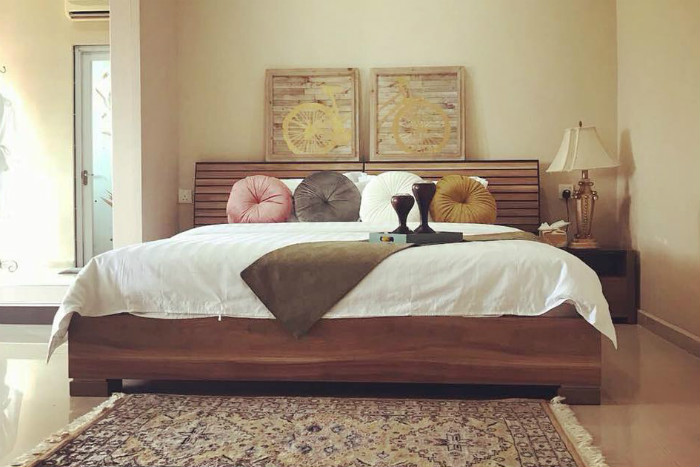Lush surroundings, cost-effective treatment, and quality care: these are just a few of the advantages of luxury rehabs in Malaysia.
Treatment facilities here can help you heal from the inside out. And with plenty of interesting activities, holistic treatments, and personalized programs available, Malaysia is the perfect backdrop for many people’s recovery journeys. We’ll explore those reasons in depth below.
1. Malaysia’s Dense Rainforests and Dreamy Coastlines are Healing Settings
In the tropical climate of Malaysia, vibrant rainforests teem with life. Bright vegetation encircles the capital city, Kuala Lumpur. Hot weather combines with plentiful rain to make greenery flourish. Green gives way to blue once you reach the sandy beaches that ring the country’s coastlines.
If this is the setting you’d like to start your recovery journey in, you’re in luck: several luxury rehabs offer comprehensive care in Malaysia. One such facility is Shine Wave Retreat, in the hills of Johor Bahru. Palm trees pepper the outdoor patio and grassy knolls surround the campus. Patients find refuge at this private oasis while they seek recovery for mental health conditions like anger, depression, or bipolar disorder.
Unique Jungle and Ocean Activities
Some rehabs in Malaysia plan outings that immerse clients into the stunning landscape. Solace Asia, for example, has a variety of exhilarating outdoor activities to choose from. Time here might include white water rafting on local rivers, spotting monkeys, birds, and lizards on local trails in the forest, or reef diving among tropical fish and sea turtles.
Whatever adventure you embark upon, you won’t just be having fun—you’ll also be healing. Research shows that challenging yourself with new activities is beneficial for mental health.1 Adventurous pursuits make you feel good because they activate the same areas of the brain that rewards do. Learning new things strengthens your brain by creating new pathways. You’ll build confidence by accomplishing things that scare you. And you’ll feel more fulfilled—“a sense of flourishing,” says Frank Farley, Ph.D., a professor at Temple University.
And thanks to the tropical climate, it’s possible to do many of these activities most days of the year.
2. The Year-Round Warm Climate
You can expect temperatures in Malaysia2 to range from warm (23°C or 73°F) to hot (32°C or 90°F). Because Malaysia has a tropical climate,3 conditions will be both humid and rainy. Monsoons bring heavy rainfall. The northeast monsoon lasts from November to March, and the southwest monsoon occurs from May to October.
If you’re wondering what to pack for rehab, definitely bring clothes for hot weather. However, most people in Malaysia are Muslim and dress conservatively. Because of this, it’s more acceptable to wear loose, lightweight clothing with more coverage for outings. A staff member at your facility can help you decide what to bring.
3. Malaysia Rehabs Accommodate Your Needs
It’s important to have your needs met as you focus on the challenging work of recovery. Whether you have diet restrictions or co-occurring mental health conditions, luxury treatment facilities in Malaysia are happy to accommodate.
Special Programs for Adolescents and Young Adults
No one is exempt from mental health conditions. Children, teens, and adults can all face challenges like depression or anxiety. In fact, research shows that mental health issues are on the rise in kids.4 And many struggle with additional distress due to recent world events. A report from the World Health Organization (WHO) found a 25% increase in anxiety and depression5 of people worldwide in 2020.
Fortunately, centers like Shine Wave Retreat and The Wave Youth Clinic offer specialized treatment for young people, so no one is left behind.
The Wave Youth Clinic in Kuala Lumpur is a dedicated teen and young adult treatment center. Their full spectrum of care includes boarding and education, outpatient, and online services.

Flexible Dietary Offerings
Good nutrition is crucial in recovery as you heal from the damage of substances and stress. Whether you’re gluten-free, dairy-free, plant-based, or adhering to religious guidelines, treatment centers cater to clients’ dietary needs.
At Serene Retreat, staff can prepare Kosher, Halal, vegan, or vegetarian meals. At Solace Asia, all food served follows Halal guidelines. Many luxury rehabs place a focus on healthy eating and will gladly adjust their menus to your dietary restrictions—check with admissions staff for details.
Dual Diagnosis Treatment
Mental health conditions often underlie substance use disorders. This is known as a “co-occurring disorder” or “dual diagnosis,” and many people aren’t aware of this until they discover it in treatment. It’s more common than you may think: about 9.2 million adults in the U.S. have a co-occurring disorder.6
Co-occurring disorders are complex, and require treatment by a team that truly understands them. You might require a combination of techniques that involve clinical, holistic, and medication-assisted care. Solace Asia is one rehab that specializes in dual diagnosis treatment. Clinicians work with clients to create a personalized treatment plan that’s based on psychotherapy and may or may not include medication, depending on your needs.

4. Healing (and Happiness) With Holistic Care
Luxury rehabs in Malaysia emphasize holistic care. Holistic treatment focuses on the whole person, addressing physical, mental, spiritual, and social needs as part of the recovery journey. Mind-body practices like yoga and mindfulness meditation facilitate the healing process and reconnect you to your happiness.
“Many of us forget to be happy,” says Solace Asia’s CEO & Clinical Director Dr. Prem Kumar Shanmugam. “Happiness is the basis of living. And I think whatever we do, it has to be based on being happy.”
Yoga
Yoga combines breath and movement to calm the mind and rebalance the body. Its many health benefits include reducing stress, depression, and anxiety.7 Avoiding difficult emotions is a huge driver of addictive behavior. But yoga helps people come into an easier, less judgmental relationship with these feelings—thus decreasing the urge to use.
It’s no surprise, then, that yoga is a common fixture at many rehabs. And this holds true at treatment centers in Malaysia, like Shine Wave Retreat, where clients are encouraged to take part in regular classes.
Art Therapy
You don’t have to be a skilled artist to try art therapy; the goal of this experiential therapy is to serve as an outlet for your personal expression. Art therapy provides a safe environment to process feelings that are difficult to discuss.
According to research, art therapy supports the recovery journey8 in these ways:
- boosts self-esteem
- improves self-awareness
- builds emotional resilience
- develops social skills
- increases insight
- reduces stress
The Wave Youth Clinic uses art therapy to help their teen and young adult clients through a variety of challenges. “Art therapy offers our young people a safe form of emotional expression and communication, unrestricted by language and/or communication difficulties,” says the center’s Clinical Lead, Mahisha Naidu. “The art offers a bridge between their inner world and the outside world, free of the confines of meeting certain levels of cognitive functioning.”
5. Cost-Effective Recovery
Rehabs in Malaysia are extremely affordable compared to other countries. At Serene Retreat, clients pay MYR 25,000 (about $5,500 USD or £4,500 GBP) for 28 days.
Rehabs in the West have a much higher cost—private rehabs in the U.S., for example, average $1,000 USD per day or more. Treatment in Malaysia means all-inclusive care at an accessible price point.

CEO & Clinical Director of Solace Asia, Dr. Prem Kumar Shanmugam says increasing access to mental health treatment is part of Solace Asia’s mission:
“When we first started Solace, our mission was to make sure anyone suffering from addiction could recover and live a normal life. After a few years, we revisited our mission and realized we have to make treatment affordable to the masses.”
And budget-friendly options don’t mean you have to sacrifice comfort. Luxury rehabs here are well-appointed with amenities like gourmet dining, outdoor pools, fitness facilities, adventure outings, and more.
6. Ambitious Treatment Standards
Many rehabs in Malaysia strive to stay up to date on the latest research and treatments. Dr. Shanmugam explains how the team at Solace Asia works to continually improve their programming:
“We have a team of addiction treatment experts who are certified in this field specifically,” says Shanmugam.
“We make sure that our clinical team goes for training continuously. We are involved in research, in publications. We constantly keep ourselves updated with the latest treatment approaches.”
The Wave Youth Clinic also strives for clinical excellence, aiming to “raise the bar in the standards of family and adolescent therapy” internationally. Their integrated treatment approach is based on 7 core elements: clinical, medical, education, global citizenship, outside-inside, experiences, and destination future.
7. Easy Air Travel
Malaysia has 6 international and 16 domestic airports.9 You’ll most likely fly into the Kuala Lumpur International Airport (KLIA), as this is the main international airport. Once you arrive in Malaysia, it’s easy to take a connecting flight to an airport closer to your final destination. Most luxury rehabs can help you arrange airport transfers, and some can even connect you with sober coaches or companions to accompany you on the journey to the facility.
See more on arranging treatment abroad in our article on traveling to rehab.
Find Peace in the Land Below the Wind
Malaysian rehabs can be a great option for those who want treatment in a luxury setting, at non-luxury prices. The country’s incredible jungle and beach destinations and relaxed pace of life can go a long way toward easing the transition into recovery.
See our list of luxury treatment centers in Malaysia to learn more about facilities, pricing, and program highlights, and reach out to admissions staff directly.


